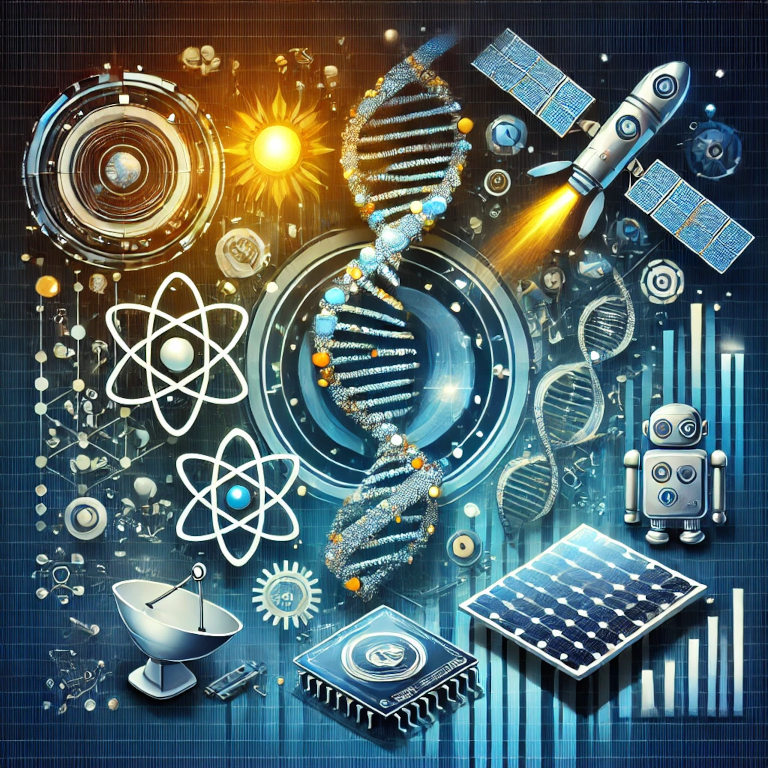The field of science and technology is continually evolving, driving significant advancements that shape our world and improve our quality of life. These innovations span various domains, including healthcare, communication, transportation, and environmental sustainability. As an expert in Science and Education, I will delve into some of the most impactful recent advancements in science and technology, highlighting their implications and benefits. This comprehensive guide aims to provide valuable insights into the transformative power of these advancements and their relevance in today’s society.
Healthcare Innovations
Advancements in science and technology have revolutionized the healthcare industry, leading to improved diagnostics, treatments, and patient care. Here are some key innovations:
1. Telemedicine
Telemedicine leverages digital technology to provide remote clinical services. This innovation has significantly increased access to healthcare, especially in rural and underserved areas.
Benefits:
- Accessibility: Patients can consult with healthcare providers from the comfort of their homes.
- Convenience: Reduces the need for travel and long waiting times.
- Efficiency: Enables prompt medical consultations and follow-ups.
2. Personalized Medicine
Personalized medicine tailors medical treatments to individual patients based on their genetic profiles. This approach enhances the effectiveness of treatments and minimizes adverse effects.
Benefits:
- Targeted Treatments: Customizes therapies to individual genetic makeup.
- Improved Outcomes: Increases the likelihood of treatment success.
- Reduced Side Effects: Minimizes the risk of adverse reactions.
3. Artificial Intelligence in Healthcare
Artificial intelligence (AI) is transforming healthcare by improving diagnostics, predicting disease outbreaks, and optimizing treatment plans.
Benefits:
- Accurate Diagnostics: AI algorithms can analyze medical images and data with high precision.
- Predictive Analytics: AI can predict disease outbreaks and patient outcomes.
- Enhanced Treatment Plans: AI assists in creating personalized treatment plans based on vast datasets.
Communication Technologies
Advancements in communication technology have reshaped how we connect and interact with the world. Here are some notable innovations:
1. 5G Technology
5G technology offers faster and more reliable wireless communication, enabling new applications and services.
Benefits:
- High-Speed Connectivity: Provides faster internet speeds and lower latency.
- Enhanced Mobile Experiences: Supports high-quality streaming and gaming on mobile devices.
- IoT Integration: Facilitates the development of smart cities and connected devices.
2. Quantum Computing
Quantum computing is poised to revolutionize data processing and problem-solving by leveraging quantum mechanics principles.
Benefits:
- Unprecedented Processing Power: Solves complex problems much faster than traditional computers.
- Advancements in Research: Accelerates discoveries in fields such as cryptography and materials science.
- Optimized Algorithms: Improves optimization in various industries, including finance and logistics.
Transportation Innovations
Advancements in transportation technology are making travel more efficient, sustainable, and safe. Here are some key developments:
1. Electric Vehicles (EVs)
Electric vehicles are gaining popularity as a sustainable alternative to traditional gasoline-powered cars.
Benefits:
- Reduced Emissions: EVs produce zero tailpipe emissions, reducing air pollution.
- Lower Operating Costs: EVs have lower maintenance and fuel costs.
- Energy Efficiency: Converts more energy from the battery to the wheels compared to internal combustion engines.
2. Autonomous Vehicles
Autonomous vehicles use advanced sensors and AI to navigate and operate without human intervention.
Benefits:
- Safety: Reduces human error, a leading cause of accidents.
- Efficiency: Optimizes traffic flow and reduces congestion.
- Accessibility: Provides mobility solutions for individuals unable to drive.
Environmental Sustainability
Science and technology advancements are crucial in addressing environmental challenges and promoting sustainability. Here are some key innovations:
1. Renewable Energy Technologies
Advancements in renewable energy technologies, such as solar and wind power, are driving the transition to cleaner energy sources.
Benefits:
- Reduced Carbon Footprint: Decreases reliance on fossil fuels and lowers greenhouse gas emissions.
- Sustainable Energy: Provides a continuous supply of clean energy.
- Cost Savings: Reduces energy costs over time through lower operational expenses.
2. Smart Grids
Smart grids use digital technology to manage and optimize the distribution of electricity.
Benefits:
- Efficiency: Enhances energy distribution and reduces waste.
- Reliability: Improves the stability of the power supply.
- Integration: Facilitates the integration of renewable energy sources.
Educational Advancements
Advancements in educational technology are transforming the learning experience, making education more accessible and effective. Here are some notable innovations:
1. E-Learning Platforms
E-learning platforms provide online educational content and courses, making learning accessible to a broader audience.
Benefits:
- Accessibility: Offers education to individuals regardless of location.
- Flexibility: Allows learners to study at their own pace.
- Diverse Learning Resources: Provides access to a wide range of educational materials.
2. Virtual and Augmented Reality
Virtual reality (VR) and augmented reality (AR) are enhancing the educational experience by providing immersive and interactive learning environments.
Benefits:
- Engagement: Increases student engagement through interactive content.
- Experiential Learning: Allows learners to experience complex concepts in a virtual setting.
- Enhanced Understanding: Improves comprehension through visual and hands-on experiences.
Summary
Science and technology advancements are driving significant changes across various sectors, improving our quality of life and addressing critical challenges. From healthcare innovations like telemedicine and personalized medicine to communication breakthroughs such as 5G and quantum computing, these advancements are transforming our world. In transportation, electric and autonomous vehicles are paving the way for sustainable and efficient travel. Environmental technologies like renewable energy and smart grids are promoting sustainability, while educational innovations are making learning more accessible and engaging. Embracing these advancements will continue to shape a better future for all.






